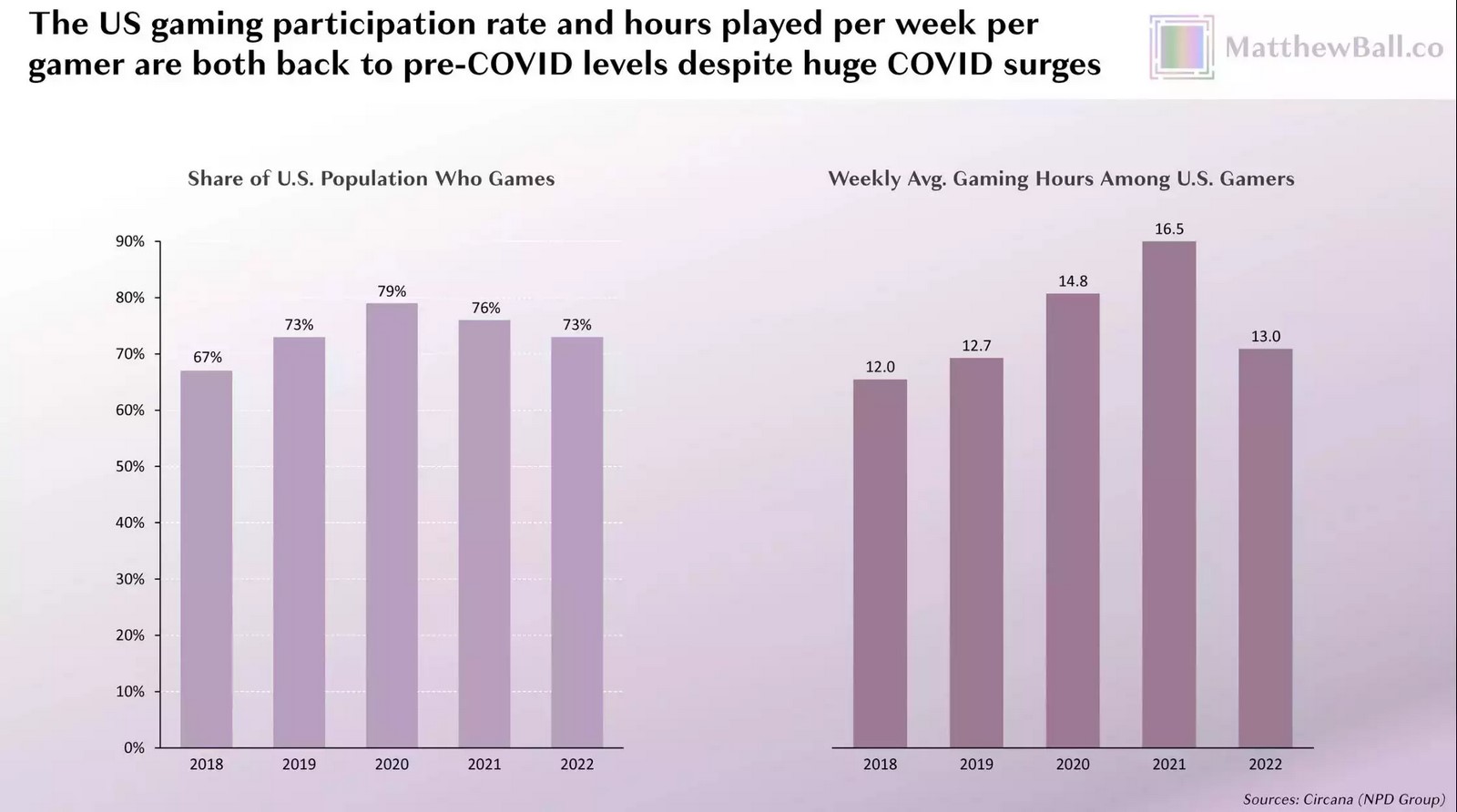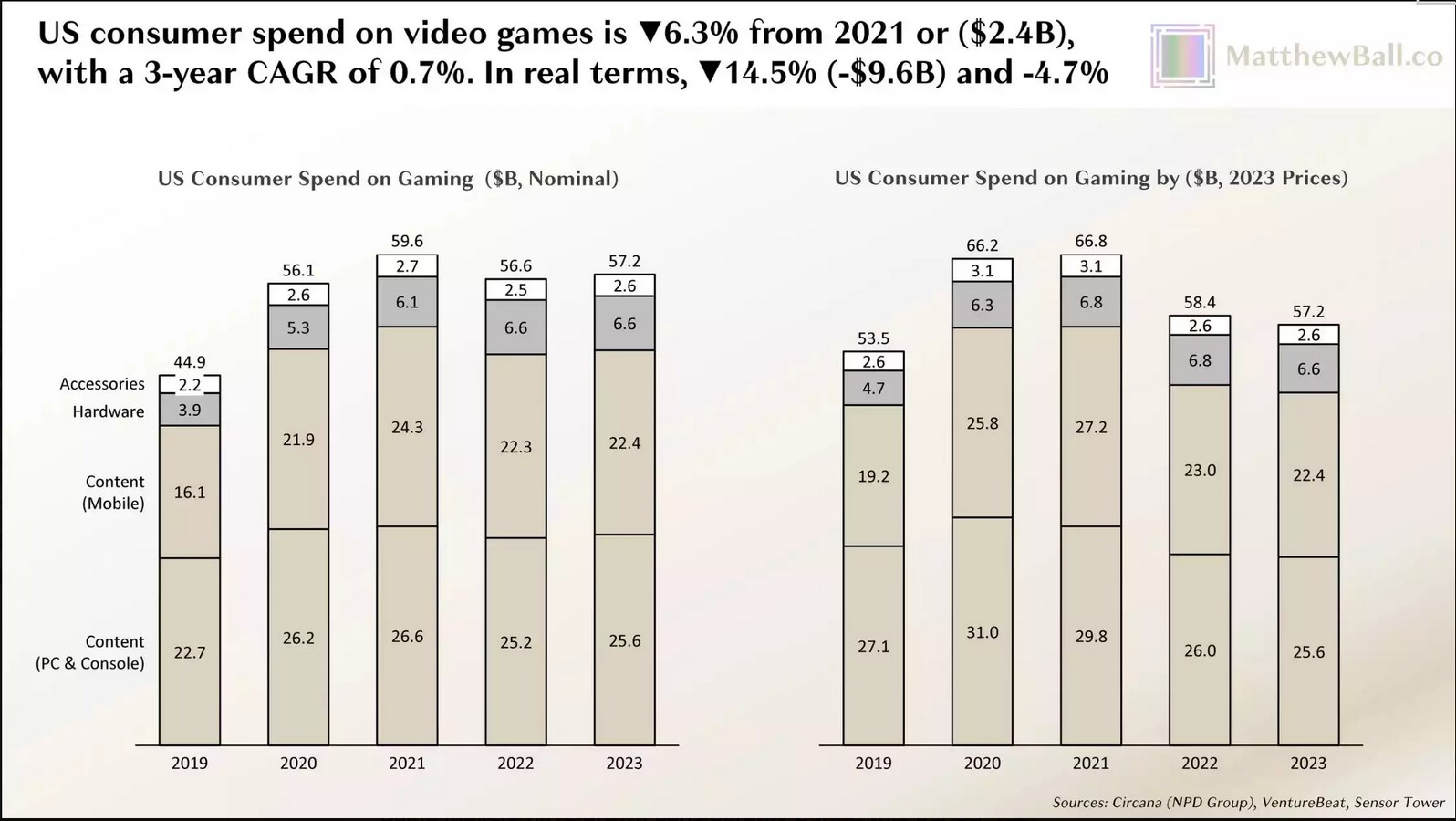The video game industry, often touted as one of the most lucrative entertainment sectors, is currently facing significant challenges that indicate trouble ahead.

Symptoms of Decline
Despite its massive size and popularity, recent trends suggest a downturn in the video game market. Here are some key symptoms:
Slumping Sales: Although video game sales surged during the pandemic, recent years have seen a decline in revenues, especially after factoring in inflation. In the US, gaming revenue fell by 2.3% in 2023 compared to the previous year.
Decreasing Usage: Gaming activity has also seen a decline, with the average gamer spending less time on games. In 2021, the average weekly gaming duration was 16.5 hours, which dropped to 13 hours in 2022.
Shrinking Player Base: The proportion of the population engaged in gaming has also decreased, contributing to the industry’s challenges.
Layoffs: The games industry has witnessed a surge in layoffs, with thousands of jobs lost in recent years, indicating a turbulent period for companies and workers alike.
Possible Causes
Several factors contribute to the industry’s current predicament:
Post-Pandemic Slump: The surge in gaming activity during the pandemic has subsided as people return to more normal routines, akin to the decline observed in other online activities like e-commerce.
Disruption in Mobile Advertising: Changes in mobile ad policies by companies like Apple have disrupted the mobile gaming ecosystem, making it harder for game developers to acquire new users and monetize their apps effectively.
Rising Development Costs: The increasing complexity of games, coupled with higher production costs, poses challenges for developers, especially smaller studios. Building and maintaining live games like Fortnite require substantial investments, deterring many developers from pursuing ambitious projects.

Ossification and Lack of Innovation
The industry’s ossification, characterized by a focus on big-budget titles and sequels, stifles innovation and limits opportunities for new entrants. With rising development costs, studios are reluctant to take risks, resulting in a lack of diversity and creativity in game offerings.
Parallels with Hollywood
The challenges facing the video game industry mirror those experienced by Hollywood, with both sectors grappling with consolidation and a risk-averse approach to content creation. As the media landscape evolves, stakeholders in both industries must adapt to changing consumer preferences and technological advancements to thrive in the digital era.
In conclusion, while the video game industry continues to generate significant revenue, the underlying challenges threaten its long-term sustainability and growth. Addressing these issues will require innovation, collaboration, and a willingness to embrace change to navigate the evolving landscape of interactive entertainment.






Leave a Reply